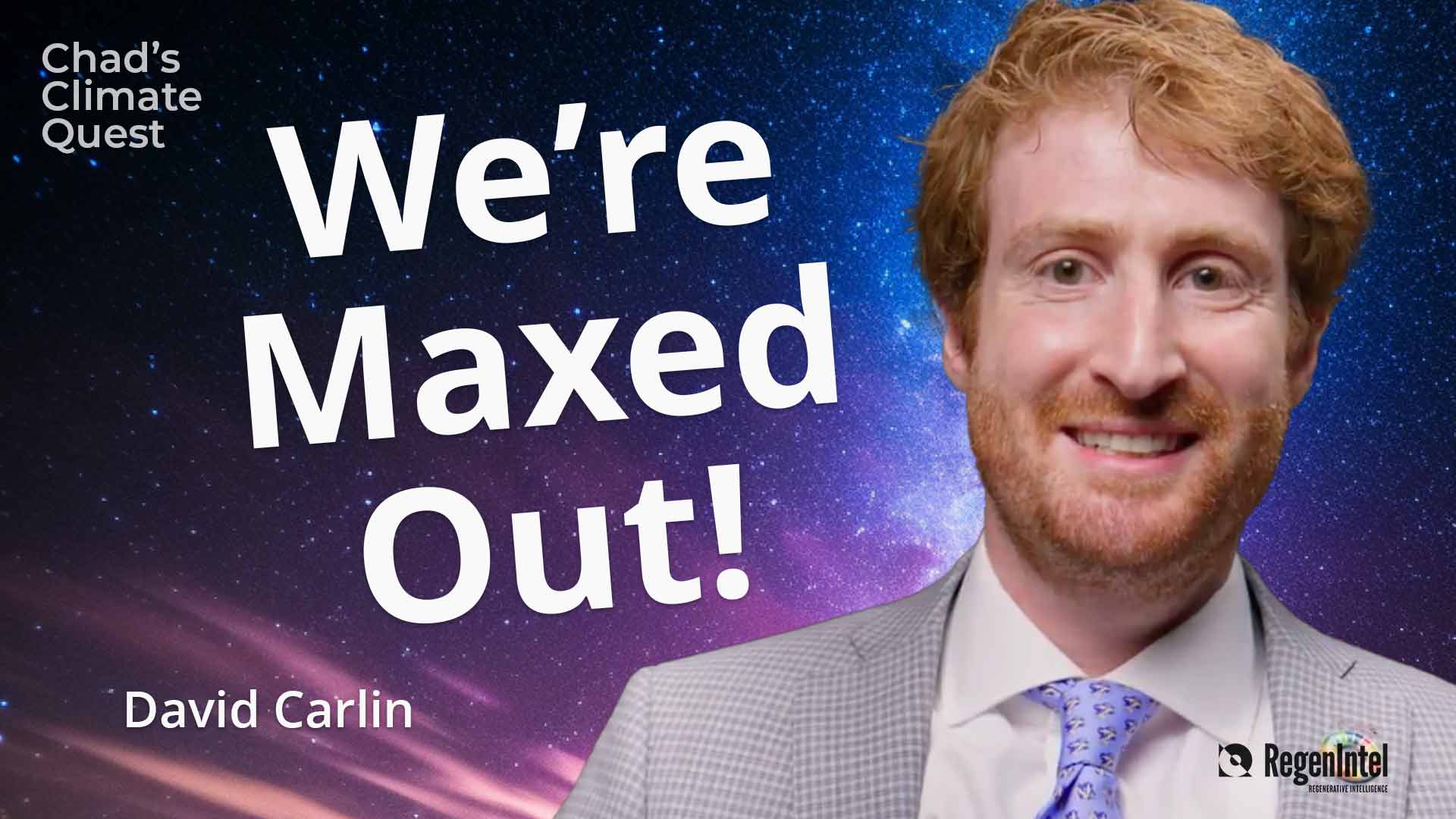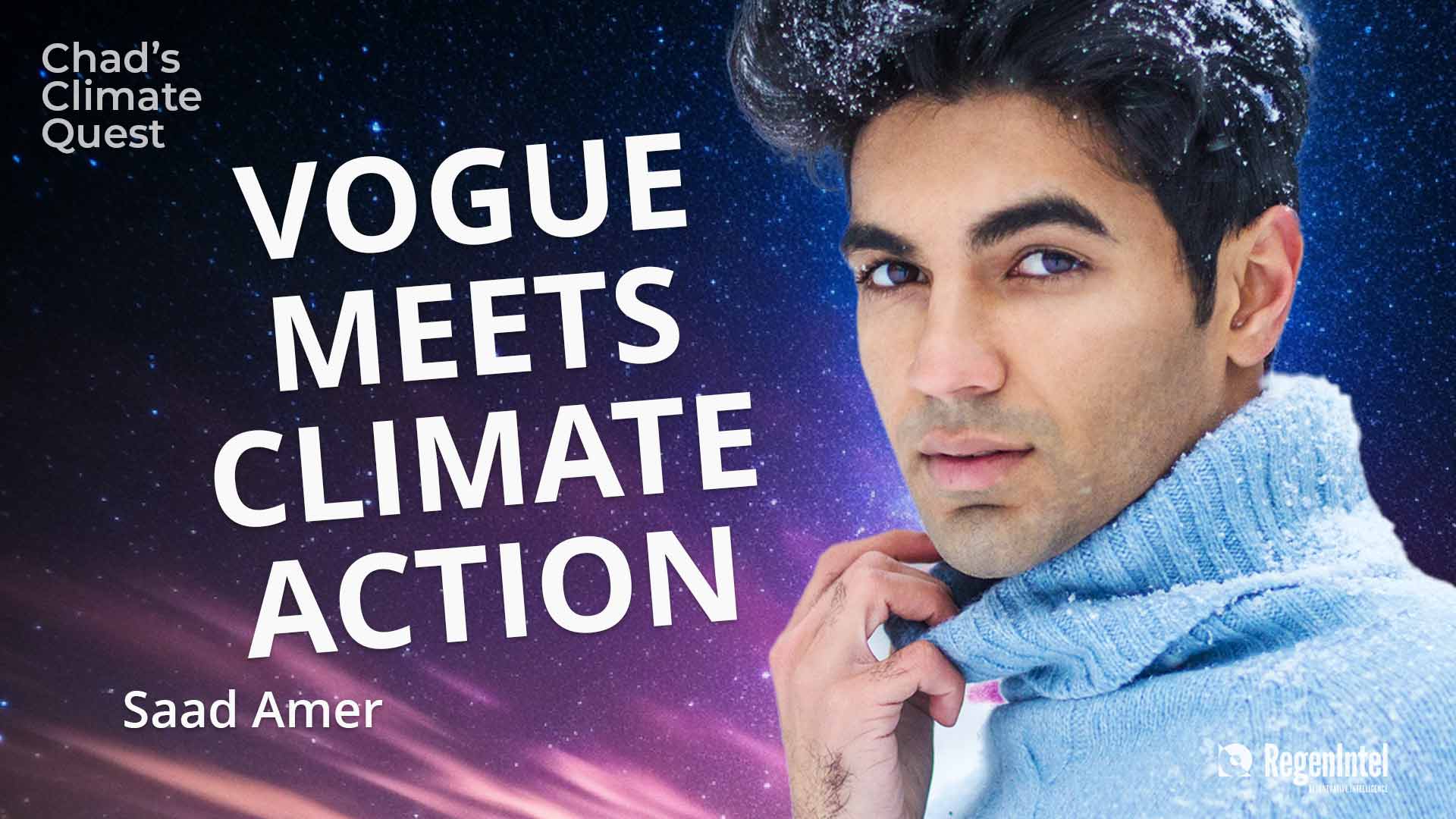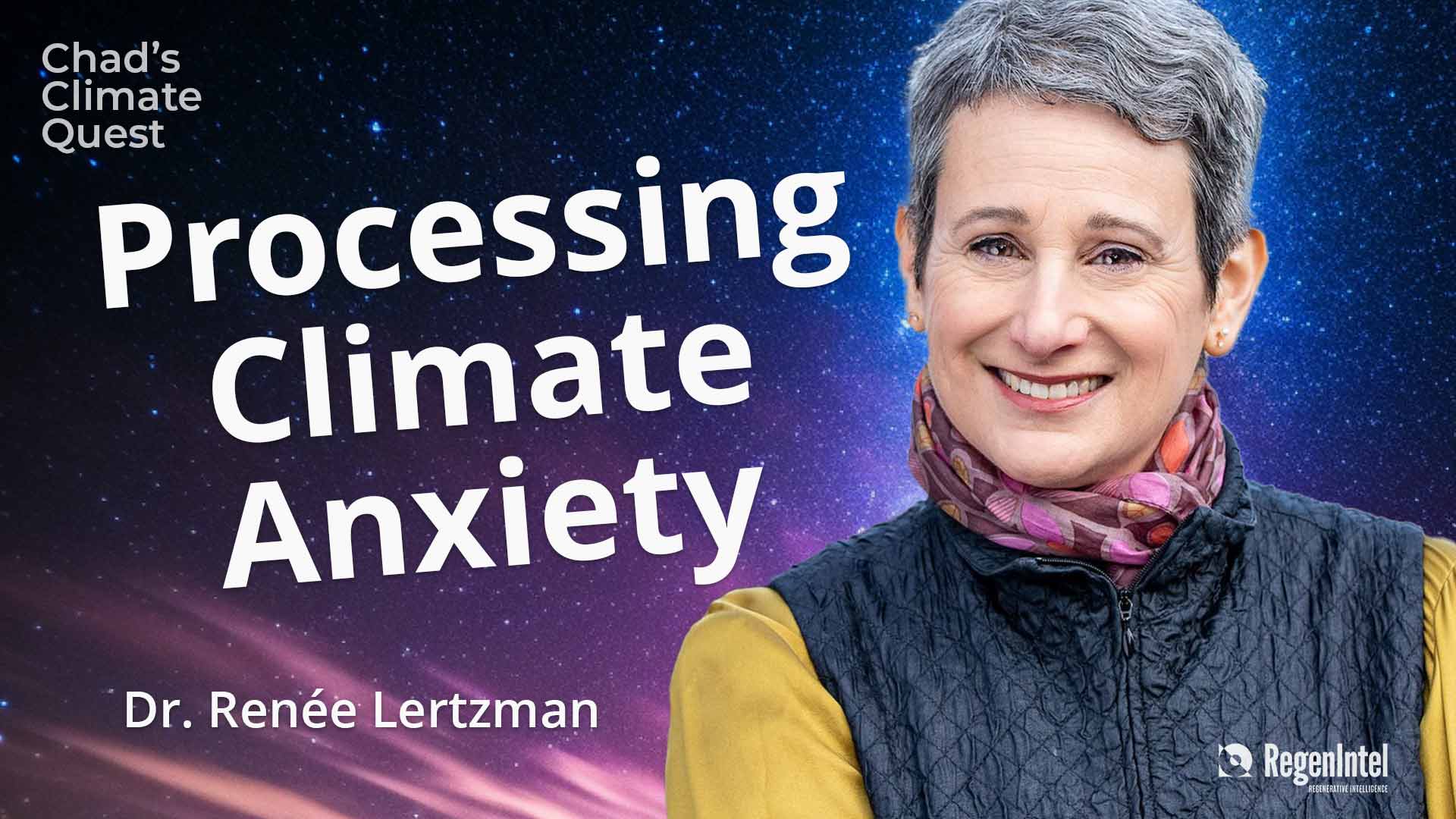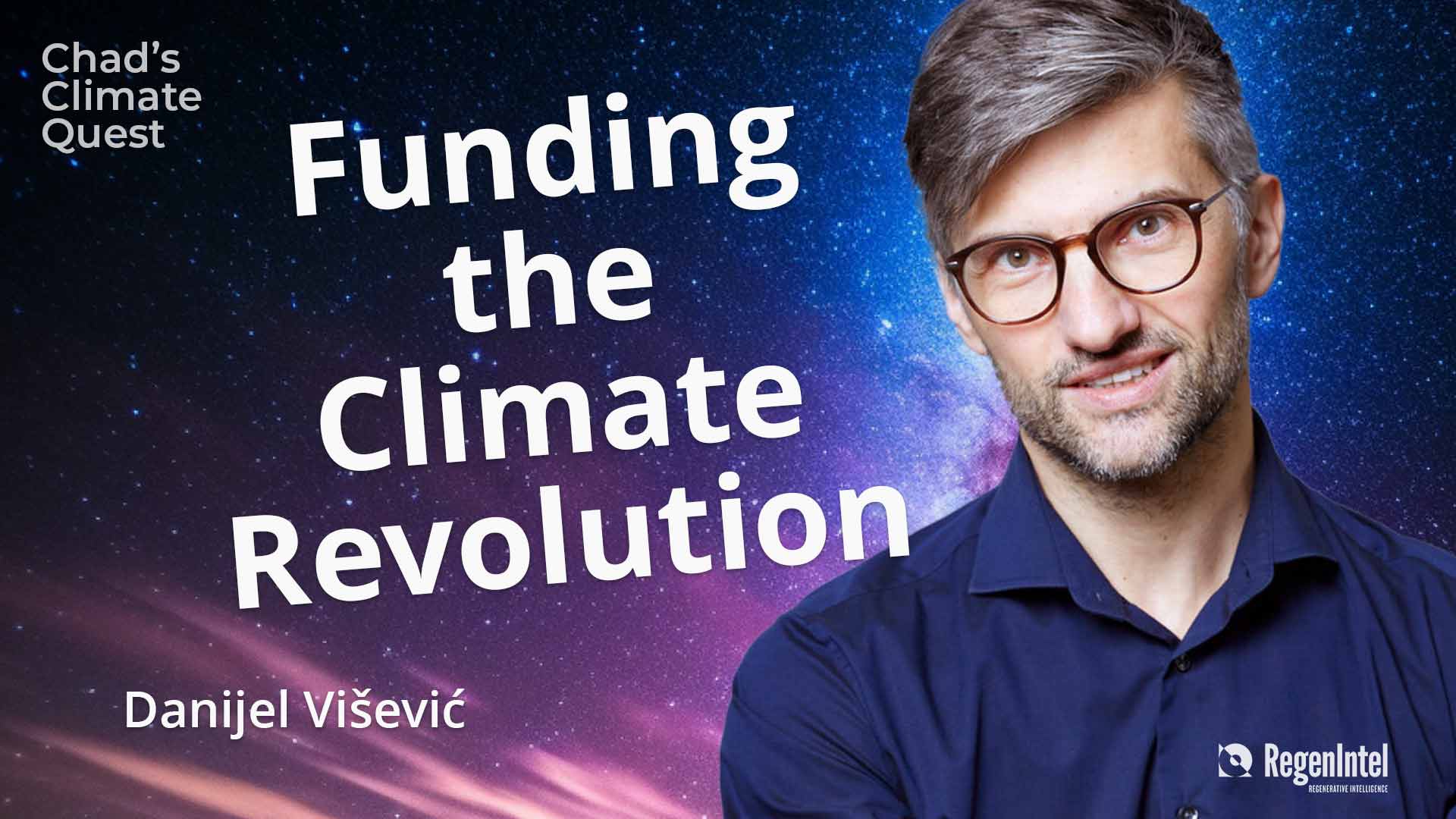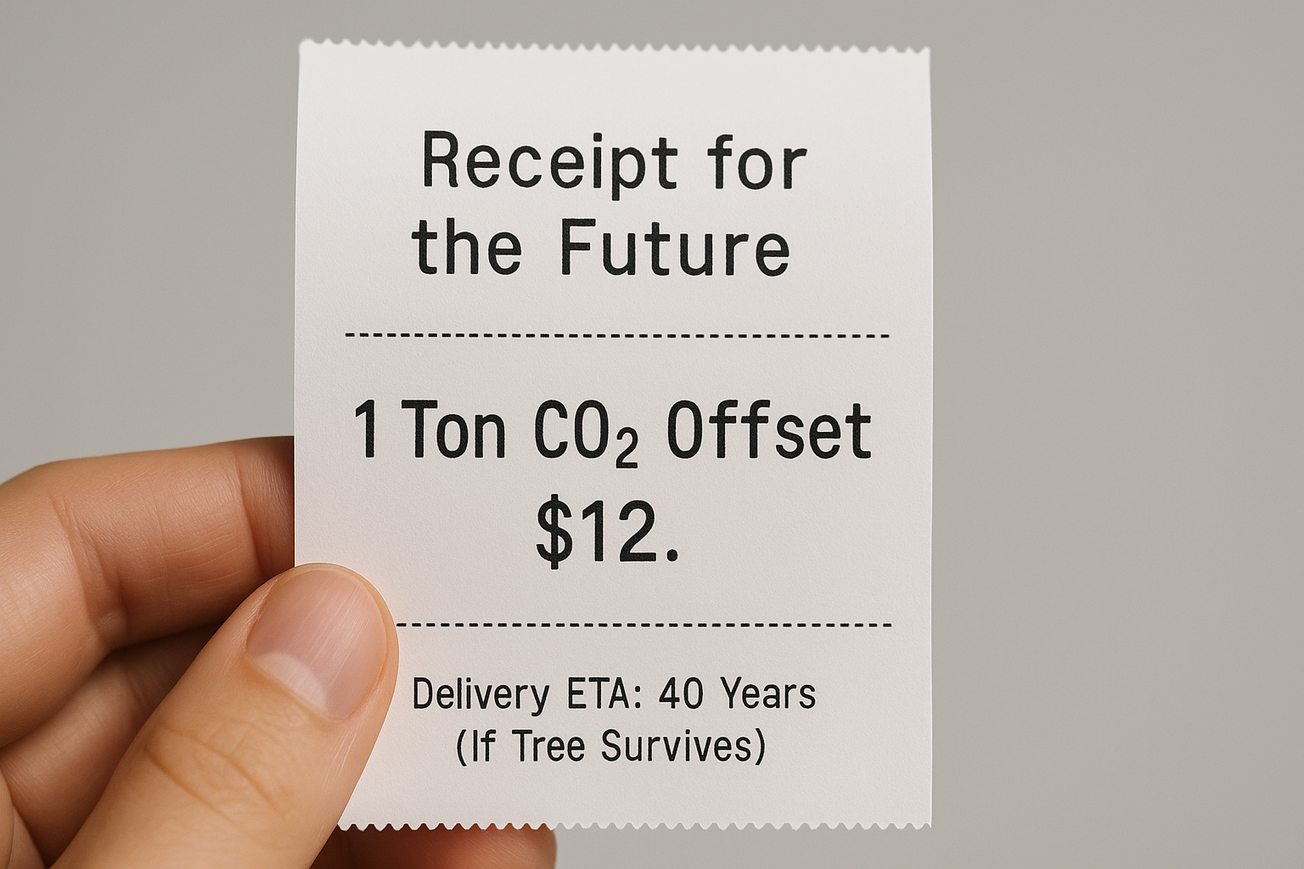The idea of envisioning a thriving, regenerative future was such a great departure from what they knew. They stuttered and were visibly anxious. Some took weeks or months to come up with a clear response. It became evident to Marc that society lacks a shared vision of a regenerative future. Without it, humans struggle to align their actions with meaningful change. They are conditioned by existing structures and crises. He's been striving to solve the vision crisis to this day as author of the UN SDG Manifesto and a collaborator on the Resilient Development Goals (2030-2050).
In this episode of Chad’s Climate Quest, Marc talks to Host Chad Frischmann about the work to align global institutions, economic systems, and individual actions toward a regenerative future where humanity and nature can thrive together. Marc and Chad are committed to giving people the tools and the space to dream about a truly better world.
Marc’s work includes authoring the Sustainable Development Goal Manifesto for the United Nations to present a vision of what the world would look like if the SDGs were successfully achieved by 2030. Discussions around the manifesto led to the next set of global goals, the Resilient Development Goals (RDGs), to integrate future-oriented, systemic approaches with global holistic living, including;
- Regenerative Agriculture – Restoring soil health, biodiversity, and food systems to create resilient ecosystems.
- Systemic Change in Institutions – Advocating for global policy shifts that support regeneration, going further than just sustaining current systems.
- Future-Fit Economic Models – Promoting ecological economics and circular economy principles.
- Education & Mindset Shifts – Encouraging people to align their desires for living with regenerative practices
- Exponential Change – Moving beyond incremental progress to transformative, scalable solutions.
- Regeneration Selfless Service to Life (SEVA in Sanskrit) – Commitment to achieving a world that works for everyone.
In this podcast exploration of regenerative solutions for climate change, Marc shares his journey, reflecting on his experiences at COP conferences and the evolution of global dialogue around climate action.
A regenerative futurist, ecological economist and global food systems reformist Marc has been at the forefront of shaping global policy, He's a board member of the Dubai Future Foundation, chair of the UNFCCC Innovation Hub and the host of the Insight Ideas podcast. Marc's passion for creating a regenerative future has made him one of the leading voices in the global sustainability movement.
Marc was one of first to be trained by former US Vice President Al Gore as a climate speaker. His systemic approach to solving complex global challenges has marked him as a pivotal figure in advocating for the UN’s Sustainable Development Goals. Marc is actively involved in numerous international initiatives and organizations. As the author of the UN SDG Manifesto and a collaborator on the Resilient Development Goals (2030-2050) with the UNFCCC and Resilience Frontiers as UN Advisor and Regenerative Futurist, he has been at the forefront of shaping our global sustainability agenda.
As a global food reformist he is dedicated to reforming the agriculture, food, and beverage industry through impactful projects and moonshot companies. This includes teaching and speaking about climate change and food reform worldwide. Marc is author of multiple books, including “Before This Decade is Out” which was launched this at the WEF in Davos, collaborating with PwC and Futur/io Institute.
Chad Frischmann is the CEO and Founder of Regenerative Intelligence (RegenIntel), a global advisory and education platform emboldening leaders in businesses, governments, and communities to implement the world’s highest-impact solutions for people and the planet. He also founded the Global Solutions Alliance (GSA), an international non-profit committed to advancing a regenerative future through open-source collaboration and a shared knowledge commons.
Widely recognized for his pioneering work at Project Drawdown—the world’s leading resource for climate solutions—Chad spent eight years as co-creator, lead researcher, and chief communicator. He co-authored the New York Times bestselling book Drawdown: The Most Comprehensive Plan Ever Proposed to Reverse Global Warming and spearheaded the Drawdown Solutions Framework, helping shape global discourse on reaching “drawdown,” the point when atmospheric greenhouse gases begin to decline.
Chad’s background spans climate, political economy, art, and storytelling, blending data-driven research with a passion for innovative public policy. He has delivered hundreds of keynotes—including a celebrated TED talk—bridging science, policy, and culture to inspire transformative action. Today, Chad’s journey continues with his podcast, Chad’s Climate Quest, where he seeks out the brightest thinkers and doers—many from RegenIntel’s “Cosmos of Stars,” a dynamic collective of the top 100 solutionists working to create a regenerative future for all life. Tune in to hear cutting-edge strategies and real-world stories that can guide your journey toward regeneration. Tune in to discover how RegenIntel’s education programs and advisory services can help you, your organization, or community drive meaningful impact and unlock a thriving, regenerative future.
Subscribe to the podcast on Spotify, Apple,or iHeart Radio.



